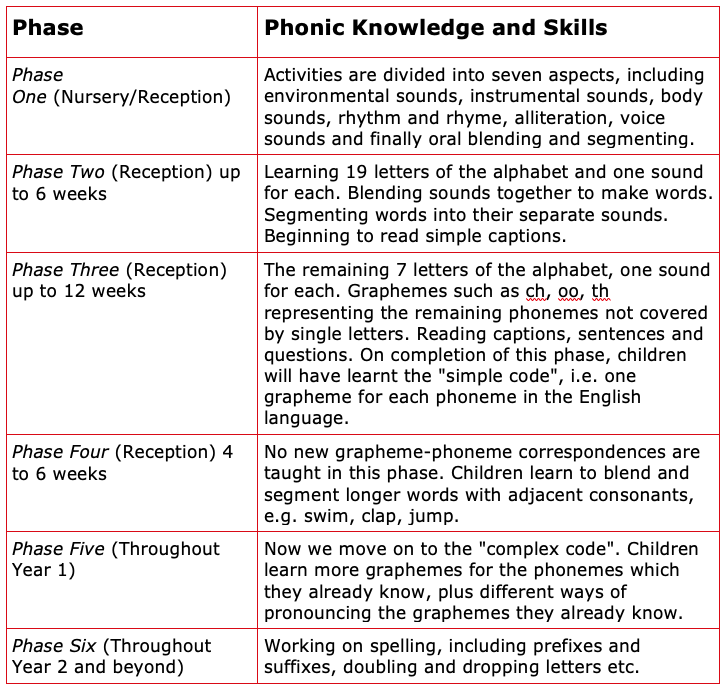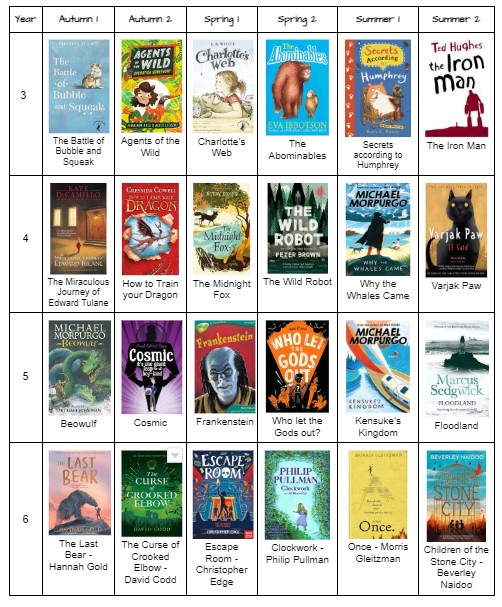Reading
Reading at Greenvale
At Greenvale, we believe that teaching children to read is the best gift that we are able to provide our children with. Pupils who develop a love of reading perform significantly better than their peers due to their increased access to vocabulary, understanding of different genres and styles as well as developing a pace to their learning which ensures that they are able to grasp and understand concepts quicker than their peers.
At Greenvale we try to promote a love of reading in a variety of ways including:
- 10 before 10 lists
- Class reading books
- Investing in high quality texts
- Reading club for Year 3 to encourage a love of reading
- 1:1 reading for children falling behind
- The use of a Pets As Therapy Dog who, along with her owner, listen to children read.
Phonics and Early Reading
At Greenvale, we teach Phonics and Early Reading using a resource called Essential Letters and Sounds.
It aims to build children's speaking and listening skills in their own right as well as to prepare children for learning to read by developing their phonic knowledge and skills. It sets out a detailed and systematic programme for teaching phonic skills for children starting by the age of five, with the aim of them becoming fluent readers by age seven.
There are six overlapping phases. The table below is a summary based on the Letters and Sounds guidance for Practitioners and Teachers. For more detailed information, visit the Essential Letters and Sounds website.
The school have recently invested in a new scheme of books (Project X and Hero Academy) to support the teaching of phonics at the school. Alongside our phonics scheme, children in Reception and KS1 are encouraged to read for pleasure. Books are chosen carefully to ensure that they are pitched correctly for pupils and ensure that they are accessible.
Reading at Key Stage 2
At Key Stage 2, pupils are provided with many opportunities to develop their reading, including:
- Reading whole class texts alongside the class
- Engagement with the 10 before 10 scheme
- Reading comprehension activities during English lessons and through homework activites.
- Independent reading
10 before 10 lists / 10 more before lists
Each class at Greenvale has a list of books, chosen by the teacher, that they are to read throughout the year. We call these the 10 before 10 books. Therefore in the year that the child turns 10 years old (Y5), they should aim to read 10 of the books on the class list.
Move your mouse over the image below to scroll across the picture

Click here to view a video on Talk for Writing
If the children complete this list, they are rewarded during an assembly. Following this, the children are given a ‘10 more before’ list of books to ensure that they are able to continue their reading journey.
Attached below are the list of books for each year group.
Class reader books
In Key Stage 2 (Year 3-6) each half term, each class will have a ‘class reader’ which they will be sharing with their classes. Much of the literacy work will focus around this text and provide children with ideas and vocabulary which will stretch them during lessons. We believe that it is always helpful for children to have a copy of the text in front of them so that they are able to follow the text as the teacher reads.
Below is a table of books for each year group.
Expectations
Pupils are expected to read each night. In Reception and Year 1, books are changed once a week. Each child is expected to read the book at least four times. This is supplemented with other reading activities including flash cards and sound mats. As pupils move up through the school, they are encouraged to become more independent and change their books for themselves.
In KS2, children are expected to read alongside an adult outside of school at least 5 times a week. There should be a focus on discussion around the book. The following sheet should help support parents in asking questions about the texts that are shared.
FAQs
My child doesn’t like reading…
We have yet to meet a child who does not enjoy a story. It may well be that they have not yet found the book that interests them. Your first port of call should always be your child’s class teacher who can always advise on books to try based on your child’s interests.
Don’t forget, it does not have to always be that they read to you as the adult. You reading aloud to them or taking a page each means that your child will still be absorbing what is read.
My child can read, why do I still have to listen to them so often?
Just because a child is able to read the words on the page, it does not necessarily mean that they fully understand what they have read. I’m sure as an adult, there will have been times where you may have read a page with your mind elsewhere and you then realise that you have not taken on board what you have just read.
By reading aloud, your children can also work on their use of expression as well as being able to discuss the storyline or characters within the text.
I can’t afford to purchase all of the books. Can I get them from anywhere else?
The school does hold copies of the 10 before 10 books in school. Should there not be any available, they can be purchased online (second hand copies are often much cheaper) or borrowed from the library.
The Book Depository - www.bookdepository.com
Abebooks - www.abebooks.co.uk
Celebration of Reading
Children are provided with many opportunities in which to share and celebrate reading throughout the school. These include events such as ‘Books Before Bedtime’, Reading fairs and the Celebration of World Book day.
Our current plan is to renovate the library area with a number of the children involved in writing to companies with requests of support. We will keep you posted on our progress through our School newsletter.
Gifting a book
Once children have read a particular text, Greenvale operates a scheme whereby children are able to donate a book to the school. We have a specially designed book plate in which the children are able to say who has passed on the book.
If your child would like to donate a book, please pass this onto your class teacher who will provide you with a book plate sticker.


